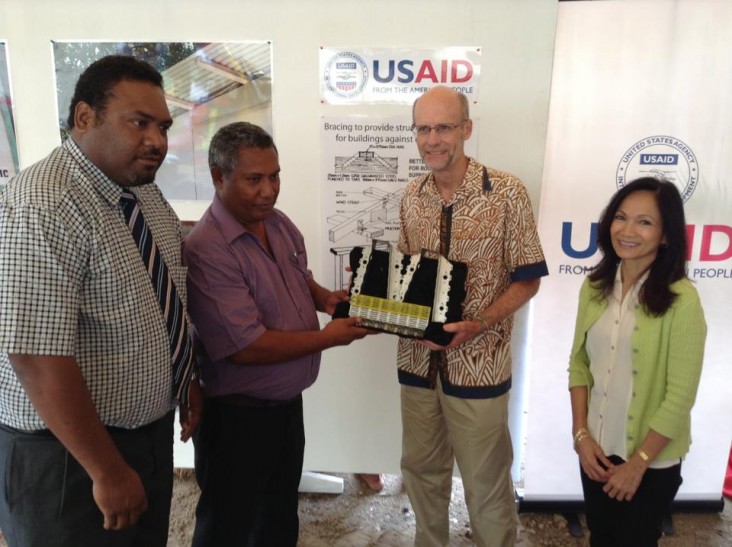
For Immediate Release
Pari, Papua New Guinea — The United States Agency for International Development (USAID) launched the Coastal Community Adaptation Project (C-CAP), a new five-year project that will build the resilience of vulnerable communities across 12 Pacific Island countries to climate change.
U.S. Ambassador to Papua New Guinea, Walter E. North, who led the launch, said, “The United States is pleased to support the Pacific region in adapting to climate change, which is crucial in sustaining economic development. This initiative emphasizes our heightened focus on this important region.”
USAID has partnered with the University of the South Pacific (USP) to implement the project via the extensive network of USP campuses throughout the Pacific region. C-CAP will identify communities at risk to increasing global climate change impacts, and assist them in rehabilitating or constructing new, small-scale community infrastructure; build capacity for community engagement for disaster prevention and preparedness; and integrate climate-resilient policies and practices into long-term land use plans and building standards.
USAID Mission Director for the Pacific Islands, Gloria D. Steele, said, “USAID will help vulnerable communities across the Pacific region to strengthen their ability to factor climate change projections into their decision-making processes.”
The C-CAP Project will help identify and rehabilitate social, economic and water infrastructure that are at risk to current and projected impacts of climate change in up to 90 communities across the Pacific region. After developing climate adaptation options, the project will support a community-led process to prioritize adaptation activities and provide funding for their implementation. It will provide technical assistance to community leaders in developing community risk maps and strategic initiatives designed to help communities seek further assistance from government agencies and outside funding sources.
Councilor Nou Mataio Taboro of Pari Taoata said, “Climate change is a major contributor to all our challenges and concerns and I strongly believe C-CAP is a way forward to study this issue and to improve the life of the community. Pari Hanua and I thank the American people and USAID for choosing our humble village to be part of the C-CAP program.”
The project is committed to building the resilience of vulnerable coastal communities in the Pacific region to withstand more intense and frequent weather occurrences and ecosystem degradation in the short term, and sea level rise in the long term.
It will implement activities in the Federated States of Micronesia, Fiji, Kiribati, Nauru, Palau, Papua New Guinea, Republic of Marshall Islands, Samoa, Solomon Islands, Tonga, Tuvalu, and Vanuatu. The C-CAP is headquartered in Port Moresby, with a sub-office in Suva, Fiji.
For more information on USAID/Pacific Islands, visit http://pacificislands.usaid.gov/.







Comment
Make a general inquiry or suggest an improvement.